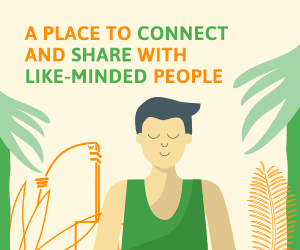Being in any kind of relationship with someone lacking in empathy and compassion can be challenging. But as Dee Marques suggests, you don't have to put up with it. Discover the signs that show someone lacks empathy and learn eight ways to handle them successfully.
As human beings, we’re wired to share experiences and connect with others. When we do that, we usually expect others to understand us, or at least to acknowledge our emotions. And that’s precisely why it’s so hurtful to come across someone who lacks empathy. The experience can leave us confused and resentful, but there are things we can do to cope with it.
In this article we’ll look at why some people struggle to empathize with others, common lack of empathy signs, and what you can do when dealing with people low on empathy.
What is empathy?
At its most basic, empathy is the ability to put ourselves in someone else’s shoes. Showing empathy means being able to identify and recognize the needs, feelings and intentions of other people around us, even if they’re different from ours.

The concept of empathy has been central to keeping societies together. Being able to empathize with others can make everyday interactions smoother and reinforce interpersonal bonds, whether they are personal or professional. Empathy is also related to other important aspects of human behaviour, such as altruism and compassion.
What’s more, empathy is considered an important aspect of emotional intelligence, as it helps us regulate our emotional response in a way that benefits us and those around us. As such, it can be beneficial to mental health, since empathetic people tend to enjoy stronger and more rewarding relationships with others.
Why do some people lack empathy?
If empathy has such a powerful effect, why do some people seem to lack it? First of all, it’s rare for someone to have no empathy at all. It’s so rare that psychologists classify a total lack of empathy as a disorder, usually linked to narcissistic or anti-social personalities.
A lack of empathy causes relationship problems
Empathy is a quality that displays to different degrees and has a strong situational component. This means that people can make the decision to show empathy or not, depending on the circumstances and the people involved. The degree of empathy someone shows can also depend on past experiences. Some people may have opened up to others and had bad experiences, so the automatic reaction is to shut down and avoid behaviours that can make them feel vulnerable or remind them of unpleasant experiences.
Another reason why you may notice signs of lack of empathy in some people is that there are different ways we come to acquire this quality. Empathy is the result of both learned and automatic responses. It’s partly innate, so we have the ability to develop it from birth.
• JOIN US! Sign-up and connect with a caring, curious and spiritual community •
But empathy is also something that can be learned, so people who were raised in families where compassion and affinity levels were low may show a lack of empathy. This is because they haven’t been exposed to good examples, or, in some cases, they may not even know that some situations require empathy.
“Behind a lack of empathy is the belief that someone is always right. This can lead to frequent arguments and can have a negative impact on personal relationships.”
While the reasons why people are low on empathy are complex, the signs of a lack of empathy are pretty much standard across the board.
Signs someone is lacking empathy
Here are some common signs of lack of empathy to know and look out for:
-
Constant criticism
People who lack empathy tend to be judgemental of others. This is usually because they’re unable to empathise with other people, so their perspective is limited and they can only find faults instead of understanding that we all make mistakes. Constant criticism and an unforgiving attitude are clear signs of an absence of empathy.
-
Poor emotional control
We’ve already explored the link between empathy and emotional intelligence. Both are essential to regulate emotional responses, so people who are low on either often overreact and have outbursts of anger or impatience. Poor control over reactions is also evident in inappropriate comments or an insensitive attitude to other people’s feelings and struggles.
-
Can’t read body language
Empathy entails “reading” other people, not only by what they say but also by paying attention to their body language. People who are low on empathy aren’t very good at picking up body language cues. Because they can’t do that, they’re likely to respond in ways that upset others.
-
They never say sorry or admit they’re wrong
Behind the lack of empathy is the belief that someone is always right. This can lead to frequent arguments and can eventually have a negative impact on personal relationships.
Handling someone who shows a lack of empathy
So, what exactly can you do if you have to interact with people who show signs of a lack of empathy? These interactions often create a cascade of negative feelings, from disappointment to anger or frustration at not being understood.
The main thing to understand is that although we can’t change people, we can change the way we react to them, even if faced with a shortage of empathy. So, the solution isn’t to get into arguments or try to reason with people who have trouble empathizing with you. Instead:
1. Don’t take insensitive comments personally
The problem isn’t you, it's the lack of empathy in the other person. Because these comments stem from poor emotional intelligence, they are likely to be based on inaccurate perceptions. Don’t take it to heart, because they’re not a reflection of who you are.
2. Avoid emotion-based reasoning
When there’s friction in interpersonal relationships, there are many situations where saying “when you do X, I feel Y” can work. But that’s not always the case with people who lack empathy – remember that their emotional responses are different, so emotion-based arguments are unlikely to yield results. It can even make them and you more frustrated.
RELATED: Constructive criticism: its benefits and how to give it
3. Manage your expectations
It would be wonderful if we could change the way people act towards us, but that’s not always realistic and especially in the case of people who are low in empathy. Avoid heartache by reminding yourself what you can and can’t expect from them and manage your expectations accordingly.

Avoid emotionally-based reasoning with those lacking in empathy shutterstock/WAYHOME studio
4. Work on your self-esteem
If you’ve been dealing with lack of empathy for a while, the negative comments or criticism may have made a dent in your self-esteem. Don’t let that hole grow any bigger by linking your self-worth to what others say or letting those attitudes feed limiting beliefs or negative self-talk. If your self-esteem needs some TLC, try some self-love meditation.
5. Keep your distance
If you’re repeatedly hurt by someone who lacks empathy, it may be wise to limit your interactions with them. This can be tricky if they’re family or coworkers that you see everyday. In that case, it could help to stick to topics that aren’t emotionally loaded. If this doesn’t work, don’t be afraid of setting boundaries.

6. Invest in healthy relationships
Keeping your distance from people who display lack of empathy signs doesn’t mean you have to isolate yourself. Compensate for limited interaction with people who struggle showing empathy by spending more time with those who do. Nurturing those relationships can build up resilience when faced with a lack of empathy.
RELATED: Building resilience – 5 strategies for thriving
7. Don’t let if affect your perception of others
Hurtful interactions with people who have no empathy can bring emotional pain, but try not to harbour it or resentment. It’s OK to be vulnerable, and in fact this goes hand in hand with empathy. Just be selective with who you open up to.
8. Take it as an opportunity to grow
Being hurt can be an opportunity to learn about ourselves and become stronger. Don’t blame yourself, but think constructively about why lack of empathy affected you and what does that reveal about your own emotions and expectations.
You can cope with lack of empathy signs
We can all develop empathy, but not everyone chooses to do so. If you’ve been affected by interactions with people low on compassion and affinity, don’t take it personally, work on your self-esteem, and nurture meaningful relationships. We can learn something from most experiences in life, so take this as an opportunity to learn about yourself, your emotional needs, and how to meet them. •
Main image: shutterstock/Dustin Petkovic
happiness.com | The fine art of being: learn, practice, share
Are you a happiness.com member? Sign up for free now to:
■ enjoy our happiness magazine
■ share and support in our happiness forum
■ develop with free online Academy courses
Written by Dee Marques
 A social sciences graduate with a keen interest in languages, communication, and personal development strategies. Dee loves exercising, being out in nature, and discovering warm and sunny places where she can escape the winter.
A social sciences graduate with a keen interest in languages, communication, and personal development strategies. Dee loves exercising, being out in nature, and discovering warm and sunny places where she can escape the winter.

Join the conversation
You are posting as a guest. If you have an account, sign in now to post with your account.
There are no comments to display.